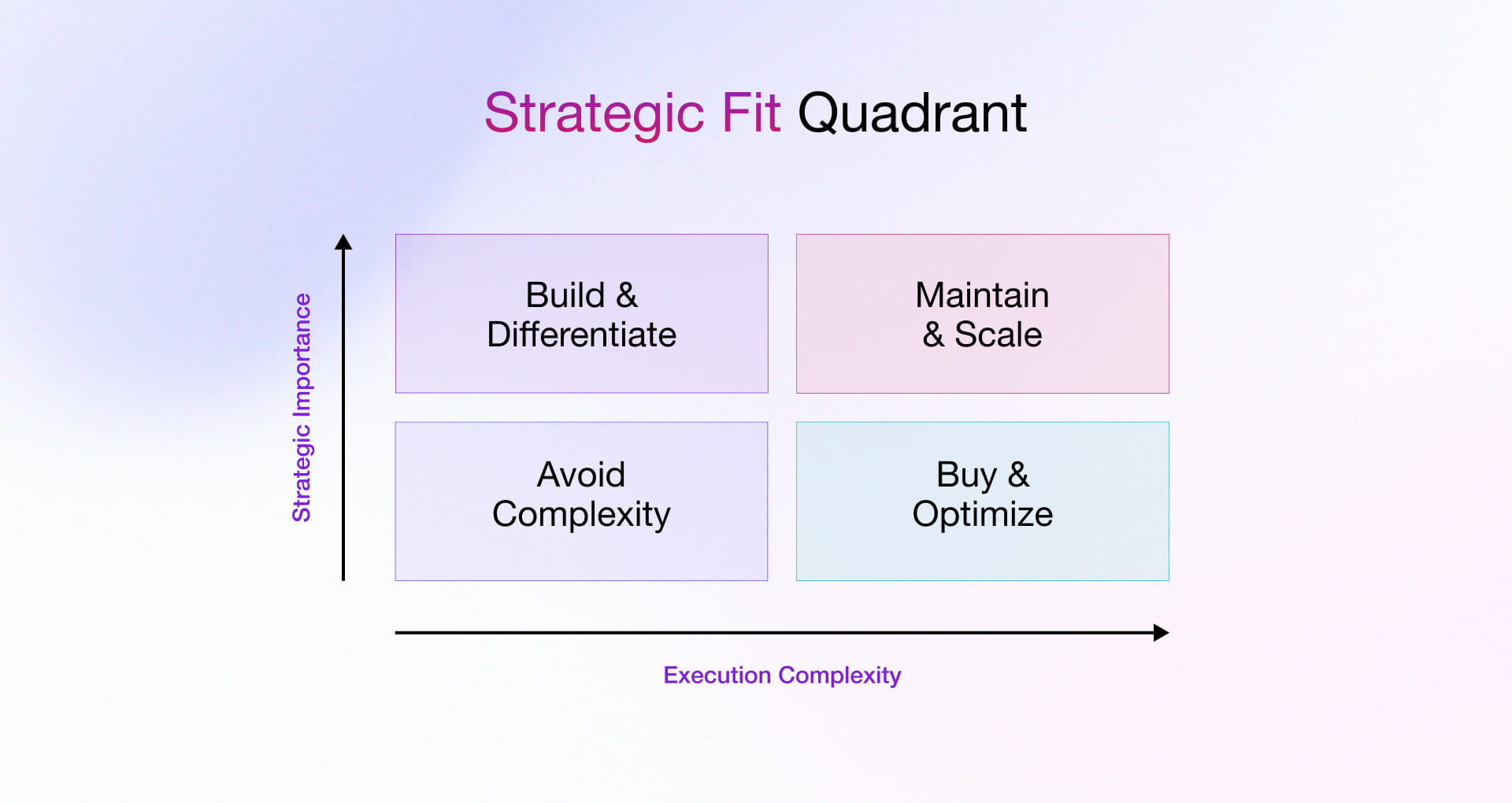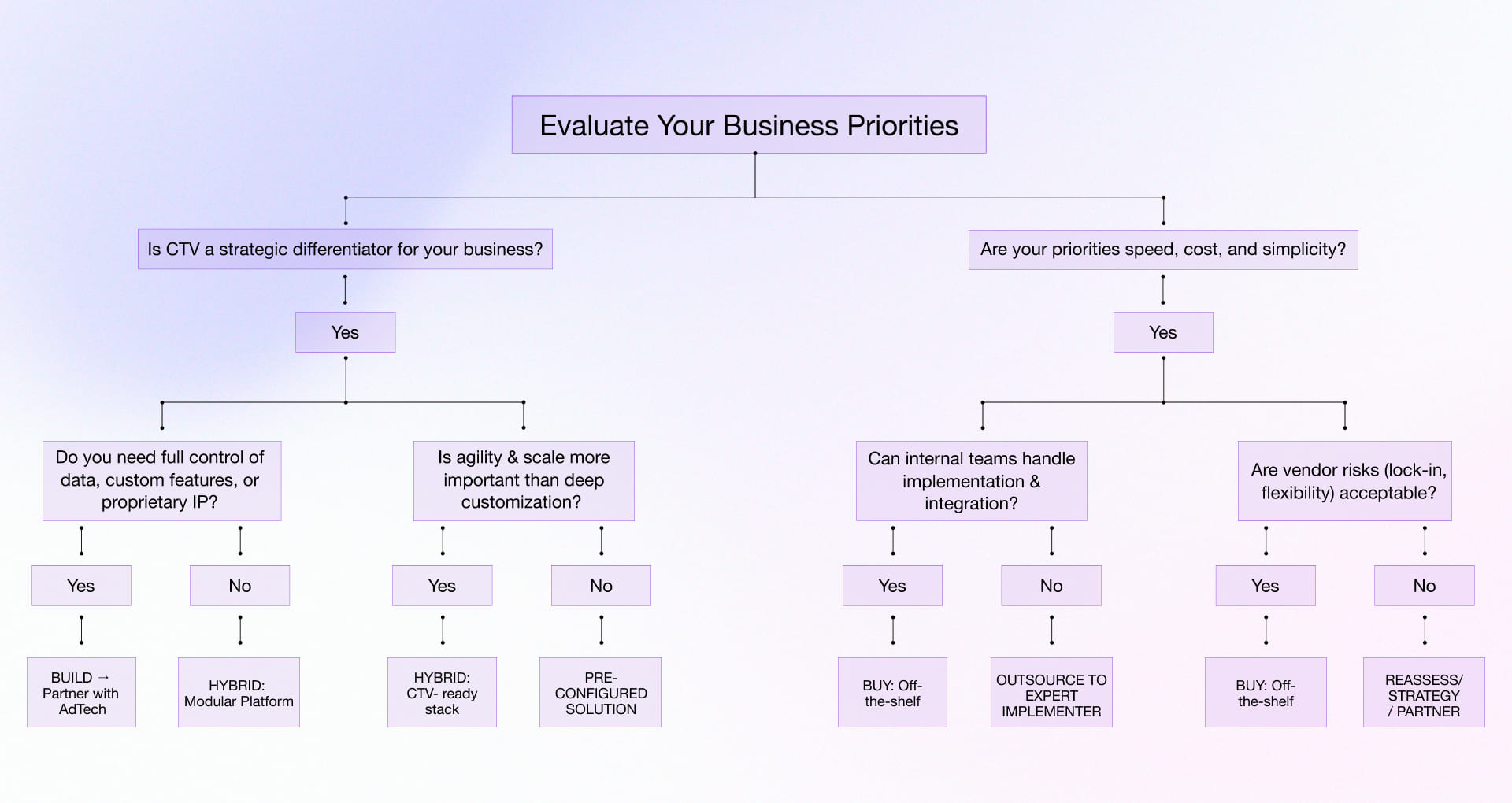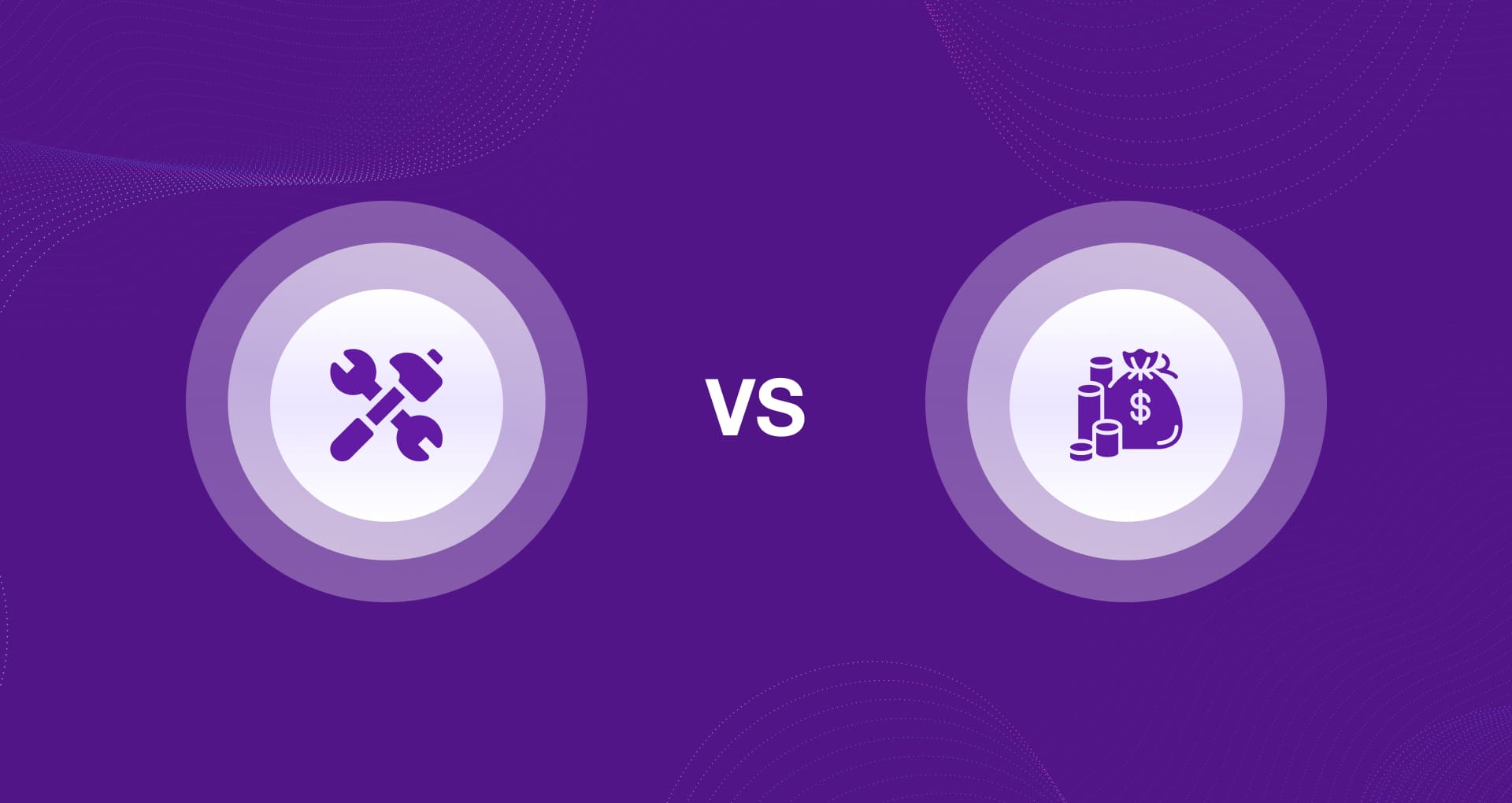In the first installment of our five-part blog series on the adoption of programmatic CTV, we explored the potential of programmatic CTV and how embracing it could lead to significant revenue growth. In the second post, we delved into the role of advanced analytics in reshaping CTV advertising. Now, in the third installment, let’s tackle a critical question: Should you opt for off-the-shelf solutions for convenience, or should you invest in building a centralized digital platform? Let’s explore both options in detail.
Custom vs. Off-the-Shelf CTV Ad Platforms: The Value Equation
A simple comparison of features and functionalities may provide surface-level distinctions between off-the-shelf and custom programmatic CTV ad platforms. However, realizing actual value requires a more strategic approach. For CXOs, evaluating platforms—such as SSPs, DSPs, Ad Exchanges, and other available options—should be done through the lens of long-term ROI, scalability, and alignment with evolving business objectives.
This is where the value equation comes into play: it’s not just about cost and capabilities but about a comprehensive framework for assessing strategic fit, operational agility, and future readiness.
The table below outlines key distinctions between the two approaches to help guide strategic evaluation:
| Value Factor | Off-the-Shelf Programmatic CTV Ad Platforms | Custom Programmatic CTV Ad Platforms |
| Deployment Speed | Rapid launch with minimal setup | Longer development with a tailored build |
| Upfront Investment | Lower initial cost, subscription-based | Higher upfront cost, including development costs |
| Customization | Limited to standard features and integrations | Fully customized to meet specific business needs |
| Scalability | Easily scalable within platform constraints | Designed to scale and adapt alongside business growth |
| Competitive Advantage | Shared features with limited differentiation | Unique features, proprietary workflows for differentiation |
| Maintenance | Vendor-managed maintenance and support | Requires in-house or third-party support for ongoing maintenance |
| Data Control | Vendor-defined access and reporting | Complete ownership and control over data access and reporting |
| Optimization | Automated within the platform’s capabilities | Custom algorithms and real-time optimization based on specific needs |
| Risk | Low risk (proven solution with vendor support) | Higher risk (development, integration, and ongoing maintenance challenges) |
| Time to Market | Quick deployment, already tested in CTV environments | Longer to implement; requires ad tech and CTV-specific expertise |
| Innovation Roadmap | Driven by the vendor’s priorities and timeline | Fully in-house controlled, aligned with business objectives |
Figure 1: The Programmatic CTV Ad Platforms Value Equation
Evaluating the value equation helps stakeholders determine which CTV ad platform model aligns best with their strategic priorities and long-term growth ambitions.

Where:
Strategic Benefits include:
- Data control
- Custom targeting
- Brand differentiation
- Long-term scalability
- Tech-stack alignment
Total Cost of Ownership includes:
- Upfront investment
- Time to deployment
- Maintenance burden
- Vendor lock-in risk (for off-the-shelf)
- Talent and infrastructure costs (for custom)
Decision Matrix: What Should Be Your Preferred Choice?
The decision to build or buy a programmatic CTV ad platform hinges not just on the cost or deployment speed. For senior AdTech leadership, the question is one of aligning platform investments with strategic imperatives, operational maturity, and long-term value realization.
Below, we present three proven frameworks to support executive decision-making.
1. Strategic Fit Quadrant (2×2 Matrix)
A quadrant model showing when to build or buy programmatic CTV ad platforms based on two axes: Strategic Importance vs. Execution Complexity.

- Build & Differentiate (Top-left): High strategic value, manageable complexity. Invest in custom development when CTV is a strategic growth lever and internal capabilities are mature.
- Buy & Optimize (Bottom-right): Low strategic value, high complexity — best for off-the-shelf. Deploy off-the-shelf solutions to minimize operational burden where differentiation is not essential.
- Maintain & Scale (Top-right): High value but too complex — may need a hybrid. A hybrid strategy may be warranted. Combine vendor platforms with selective customization.
- Avoid Complexity (Bottom-left): Low value, low complexity — deprioritize
2. Weighted Scorecard (Executive Summary View)
The weighted scorecard enables executive teams to evaluate Build vs. Buy options by assigning relative value to key platform drivers for programmatic CTV. Decision-makers can then assign importance to each factor (on a 1–5 scale) and assess each option accordingly.
| Factor | Weight | Build Score | Buy Score |
| Data Ownership | 5 | 5 | 2 |
| Customization | 4 | 5 | 2 |
| Speed to Market | 3 | 2 | 5 |
| Vendor Risk | 4 | 5 | 2 |
| Long-term Value | 5 | 5 | 3 |
| Weighted Total | X | YY |
Use total scores to support the business case.
Note: Use this as a quantifiable framework for internal stakeholder discussions. Adapt the scores based on your organizational priorities and CTV maturity curve.
3. Strategic Decision Tree: Build vs. Buy – Programmatic CTV Ad Platforms/Solutions
This strategic decision tree distills complexity into a guided logic model, helping CXOs determine the most suitable platform path.

CXO Checklist: Custom vs. Off-the-Shelf Programmatic CTV Ad Platforms
CXO Checklist: Buy (Off-the-Shelf) Programmatic CTV Ad Platform
Does the platform meet 80-90% of our current business and technical needs with minimal customization?
Can the solution be deployed quickly to support our go-to-market timelines and campaign execution?
Are the licensing, support, and operational costs transparent and aligned with our budgeting cycle?
Does the vendor offer strong data security, compliance, and user privacy standards?
Are we comfortable with the limitations of vendor lock-in and lack of control over feature evolution?
Will we be able to measure ROI based on speed, scale, and advertising outcomes post-deployment?
CXO Checklist: Build (Tailored) Programmatic CTV Ad Platform
Would a custom-built platform better align with our unique business model, revenue objectives, and differentiation strategy?
Are we prepared for a longer value in exchange for greater control, scalability, and ownership?
Do we have the budget and internal buy-in to support a phased development approach with an external tech partner, such as Rishabh Software?
Does the partner bring proven expertise in ad tech, CTV ecosystems, and scalable platform engineering?
Will we maintain strategic control over our data, compliance requirements, and roadmap priorities?
Can the platform’s flexibility enable rapid adaptation to future market changes and innovations?
Can the platform scale effectively to meet evolving business needs?
Can we confidently define key performance indicators (KPIs) to measure ROI and business impact over time?
The CXO Action Plan: From Decision to Value Realization
In 2025, media agencies, ad tech firms, and marketing companies that outperform in digital advertising will not just hold the term “faster”; however, they’re structurally smarter about ad platform decisions. Your next growth curve may depend on how you modernize your media stack, starting with programmatic CTV.
A disciplined approach and a clear strategic mindset can lead you toward your desired trajectory. Let’s explore the key steps to achieve it:
Step 1: Map Your Advertising Value Chain & Identify Friction Points
Begin with a deep dive into your current programmatic CTV media buying & selling workflow from media planning to audience targeting, bidding, and performance measurement. Identify operational gaps, data silos, and inefficiencies that hinder scale, agility, or revenue optimization.
Step 2: Quantify Business Impact & ROI Potential
Assess how resolving key friction points could drive tangible business value. For example:
- How much additional revenue could be optimized by targeting a specific market?
- What cost reductions are possible through automation or platform consolidation?
Quantify potential ROI to build a strategic business case.
Step 3: Align CTV Advertising Strategy with Business Vision & Risk Appetite
- Choose a path that fits your growth trajectory.
- Buy if speed, vendor support, and reduced operational risk are priorities.
- Build with a tech partner if your goal is long-term differentiation, platform ownership, and data control.
- Balance ambition with feasibility ensure alignment with your tech, compliance, and investment capabilities.
You Can’t Go It Alone in Programmatic CTV Ad Platform Development
Build or buy? The question often stalls decisions. But, not anymore. In programmatic CTV, building your platform means capturing the actual upside. You are just one conversation away from partnering with the right team to start building your future.
Ready to take the final, but key, step to get started?
Rishabh Software, a trusted leader in AdTech development services, offers end-to-end programmatic CTV platform development services, from strategic consultation and integration with existing systems to full-scale custom development from scratch.








